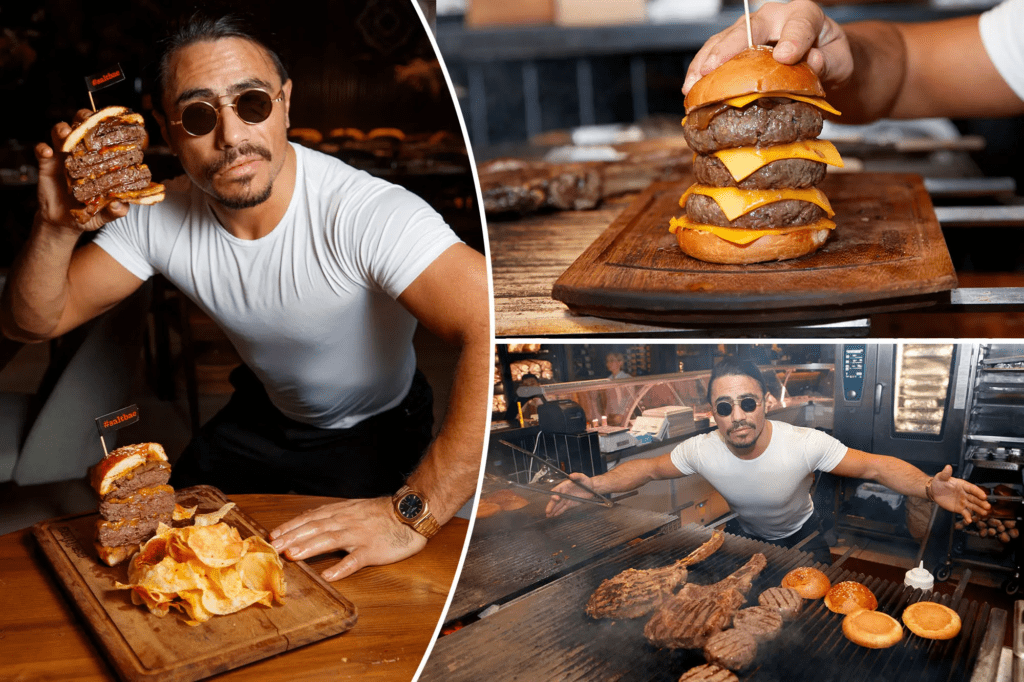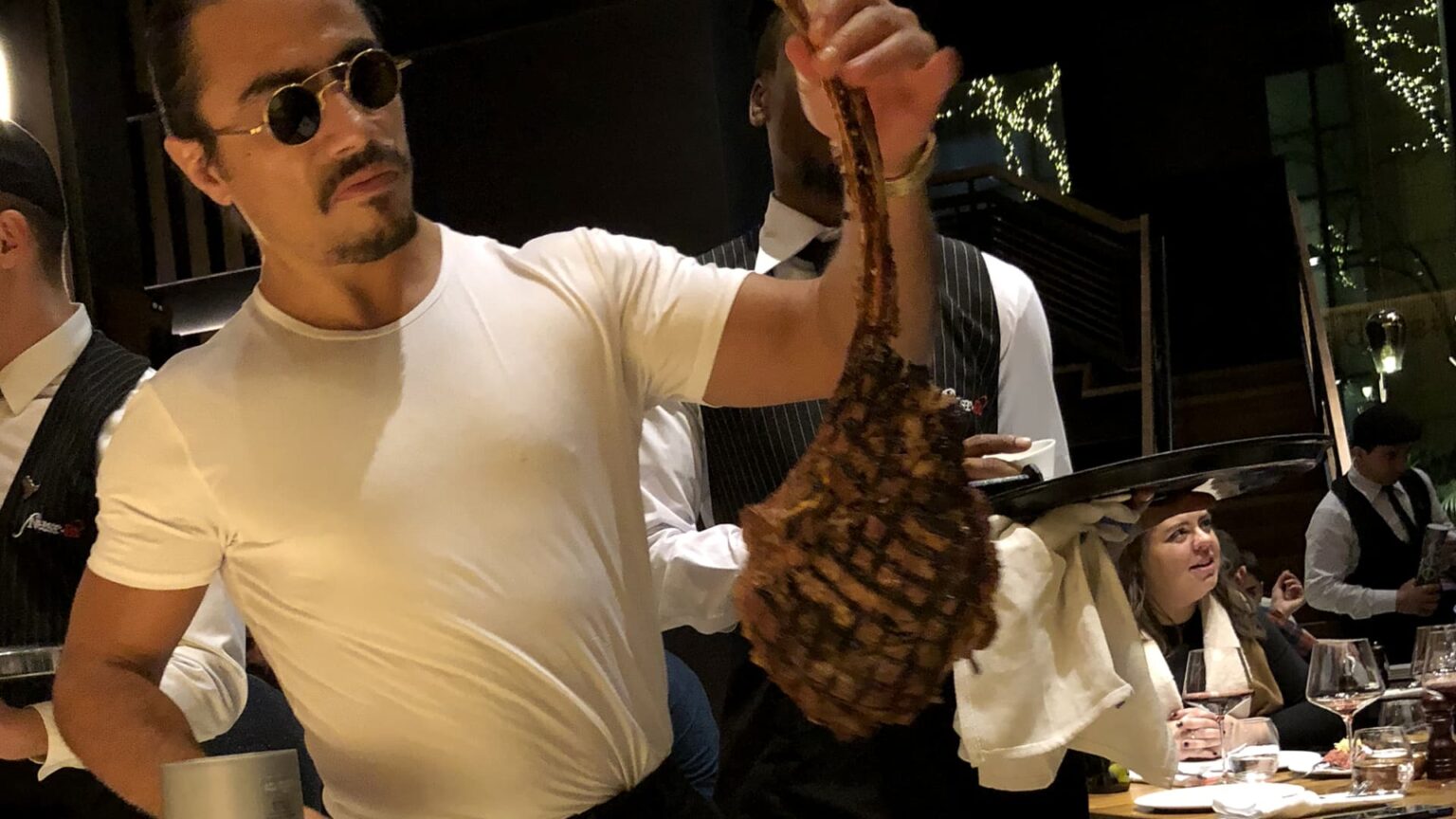In a recent social media uproar, Turkish chef Nusret Gokce, popularly known as Salt Bae, has come under fire for presenting a staggering bill of $108,500 (approximately Rs 90,23,028) for a single meal at his Dubai restaurant, Nusr-Et Steakhouse. The extravagant receipt, shared by Salt Bae himself, has ignited discussions on social media platforms, prompting criticism for what many perceive as an excessive display of wealth and luxury.

Breakdown of the Salt Bae’s Bill
The detailed breakdown of the bill reveals an opulent feast, featuring a range of dishes such as beef carpaccio, golden steak, French fries, golden baklava, a fruit platter, and Turkish coffee. The drinks menu adds to the extravagance, with four porn star martinis ($130), two bottles of Chateau Petrus 2009 ($53,900), one bottle of Petrus 2011 ($17,700), and five double glasses of the exclusive Louis XIII cognac neat ($7,500). To cap off the lavish experience, the diners generously tipped, concluding their extravagant culinary adventure with a payment of $24,500. The entire amount on the receipt is in UAE currency – AED.
Salt Bae’s nonchalant caption accompanying the post, “Money comes, money goes,” has not quelled the ensuing controversy. Social media platforms have become a battleground of opinions, with many users expressing their outrage and disdain for what they perceive as an extravagant and wasteful expenditure.
The viral image of the exorbitant bill has triggered a wave of furious comments, with users condemning Salt Bae and his restaurant as “the most overrated and overpriced” establishment. One commenter expressed their dissatisfaction by pointing out the disparity, stating, “Shameful as millions of people suffer from hunger.” Another individual emphasized the questionable use of wealth, highlighting the stark reality that such vast sums could be allocated for more meaningful purposes. “Imagine being this wealthy and blowing it on food that isn’t worth it,” remarked one user, echoing a sentiment shared by many.

The conversation on social media took a more serious turn when users began to draw attention to the potential impact on global issues. One comment resonated deeply, stating, “That would have fed at least 100,000 children in hunger around the world! How embarrassing!” This perspective has ignited discussions on the responsibility of those with substantial wealth and the ethical considerations surrounding conspicuous consumption, especially in a world grappling with significant challenges such as hunger and poverty.
As the controversy unfolds, some have come to Salt Bae’s defense, arguing that individuals are entitled to spend their money as they see fit. They point out that the high prices at Nusr-Et Steakhouse are well-known, and patrons are aware of the costs associated with dining at such an establishment.

The incident also raises broader questions about the role of celebrities and influencers in shaping public perceptions of wealth and luxury. Salt Bae, with his unique and flamboyant style, has become a global icon, and his actions are often scrutinized by millions. This episode prompts reflection on the impact of such public displays of opulence on societal values and expectations.
In conclusion, Salt Bae’s $108,500 meal has not only sparked outrage but has also ignited a broader conversation about wealth, privilege, and responsibility. As social media continues to buzz with opinions and criticisms, it remains to be seen whether this incident will lead to a more profound reflection on the choices made by those with significant resources in a world where many face pressing challenges.

